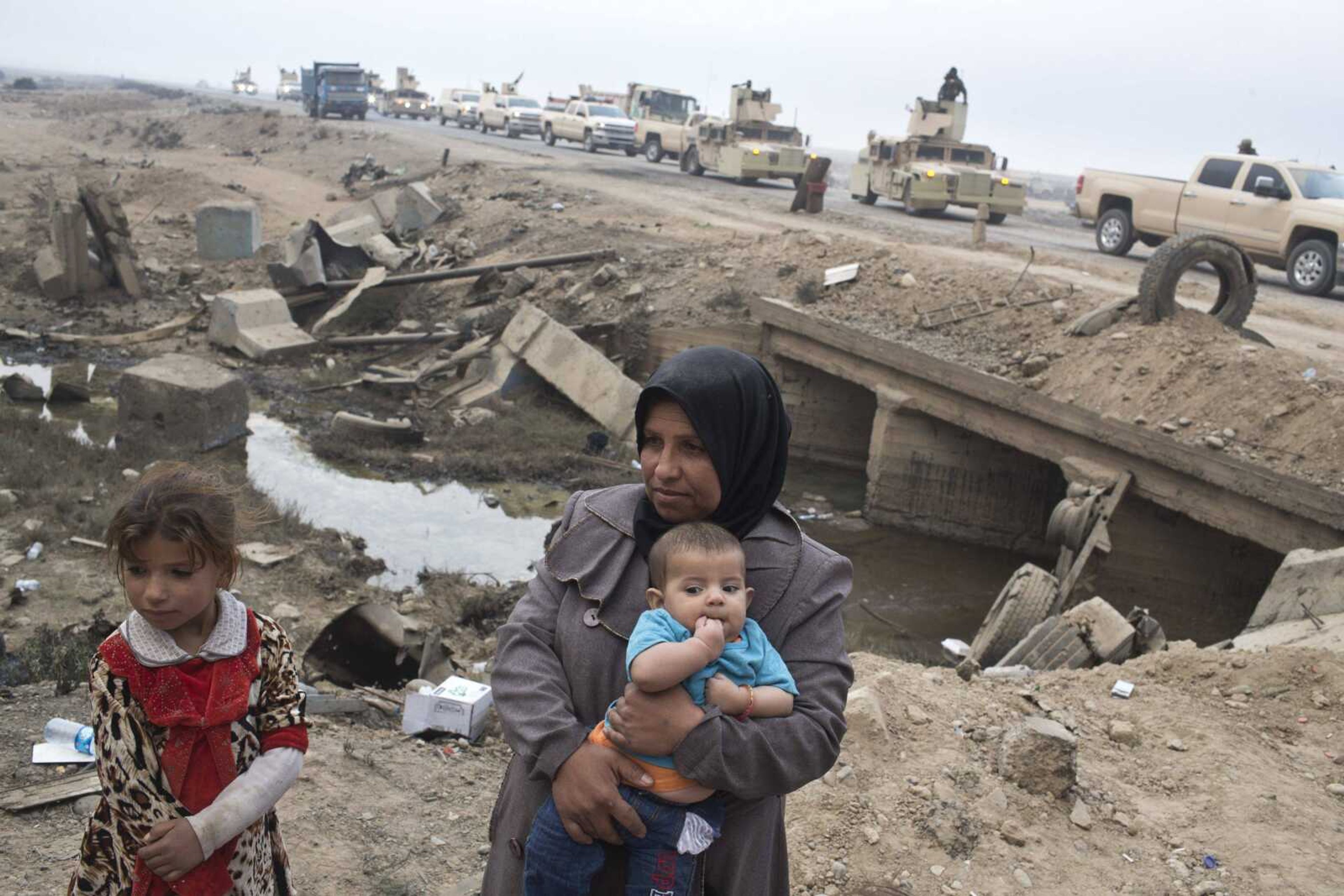Iraqis on edge of Mosul face a deadly dilemma: Stay or flee
QAYARA, Iraq -- Bayda Muhammad Khalaf followed the government's advice to stay in her home with her husband and seven children as Iraqi troops advanced near their remote village outside militant-held Mosul. But after the Islamic State fighters fled and Iraqi troops didn't appear, their supply of food ran out, and the family had to flee to search for territory firmly under government control...
QAYARA, Iraq -- Bayda Muhammad Khalaf followed the government's advice to stay in her home with her husband and seven children as Iraqi troops advanced near their remote village outside militant-held Mosul.
But after the Islamic State fighters fled and Iraqi troops didn't appear, their supply of food ran out, and the family had to flee to search for territory firmly under government control.
When the Mosul offensive began a week ago, departing IS fighters warned villagers to stay off the roads and surrounding fields, which the militants had mined.
So Khalaf waited until she saw a passing shepherd, and she and her family made the eight-hour walk out of no man's land behind a herd of sheep.
"We were starving," she said.
They had watched the start of the offensive on TV and thought Iraqi forces were on the way, but the troops' progress has been slow, and Mosul's southern approach is littered with dozens of villages, some with no more than 20 homes.
Eventually, Khalaf could not produce enough breast milk for her baby daughter.
"I started giving her goat's milk, but then the goat died," she said.
Mosul, the largest city controlled by the Islamic State group, is home to more than 1 million civilians. The government and international aid groups fear a sudden mass exodus will overwhelm the few camps set up on its outskirts.
The massive offensive is expected to take weeks or months, and with supply routes cut off by the fighting, many civilians may not be able to stay in place long.
Driven by fear or hunger, many are putting themselves in danger and complicating the campaign to expel the militants from the city, which fell to IS in 2014.
More than 5,600 people have fled areas near Mosul, according to the International Organization for Migration, with most going through IS-run territory toward the Syrian border rather than in the direction of the advancing troops, who are converging from the north, east and south.
Camps have been set up to accommodate 60,000 people, but 200,000 are expected to be displaced in the first weeks of the offensive, according to the Norwegian Refugee Council.
Connect with the Southeast Missourian Newsroom:
For corrections to this story or other insights for the editor, click here. To submit a letter to the editor, click here. To learn about the Southeast Missourian’s AI Policy, click here.










